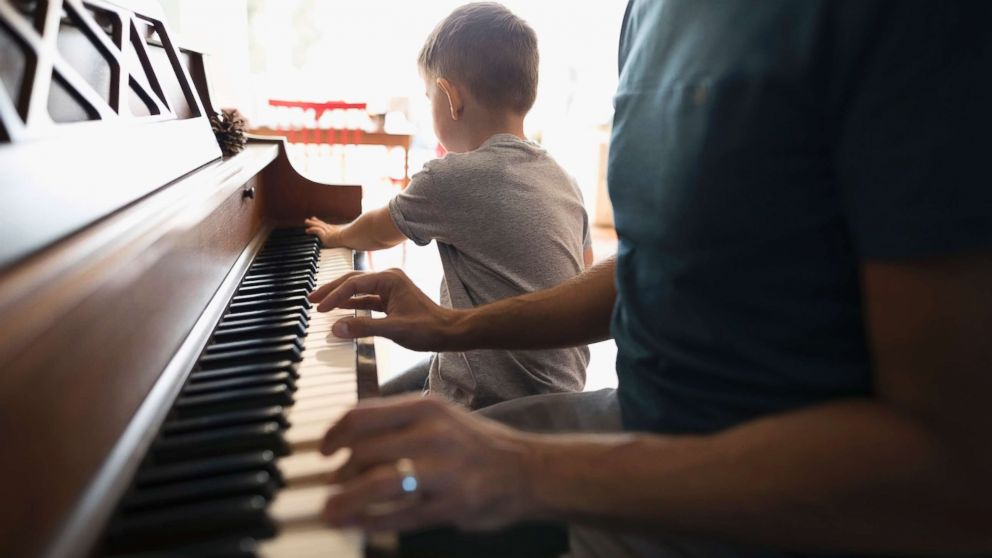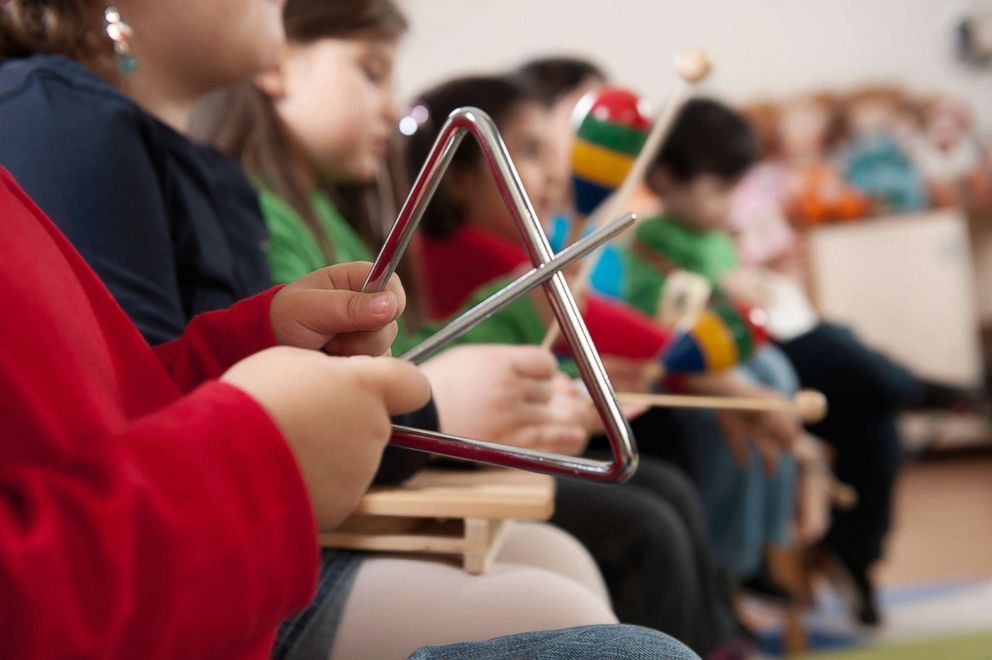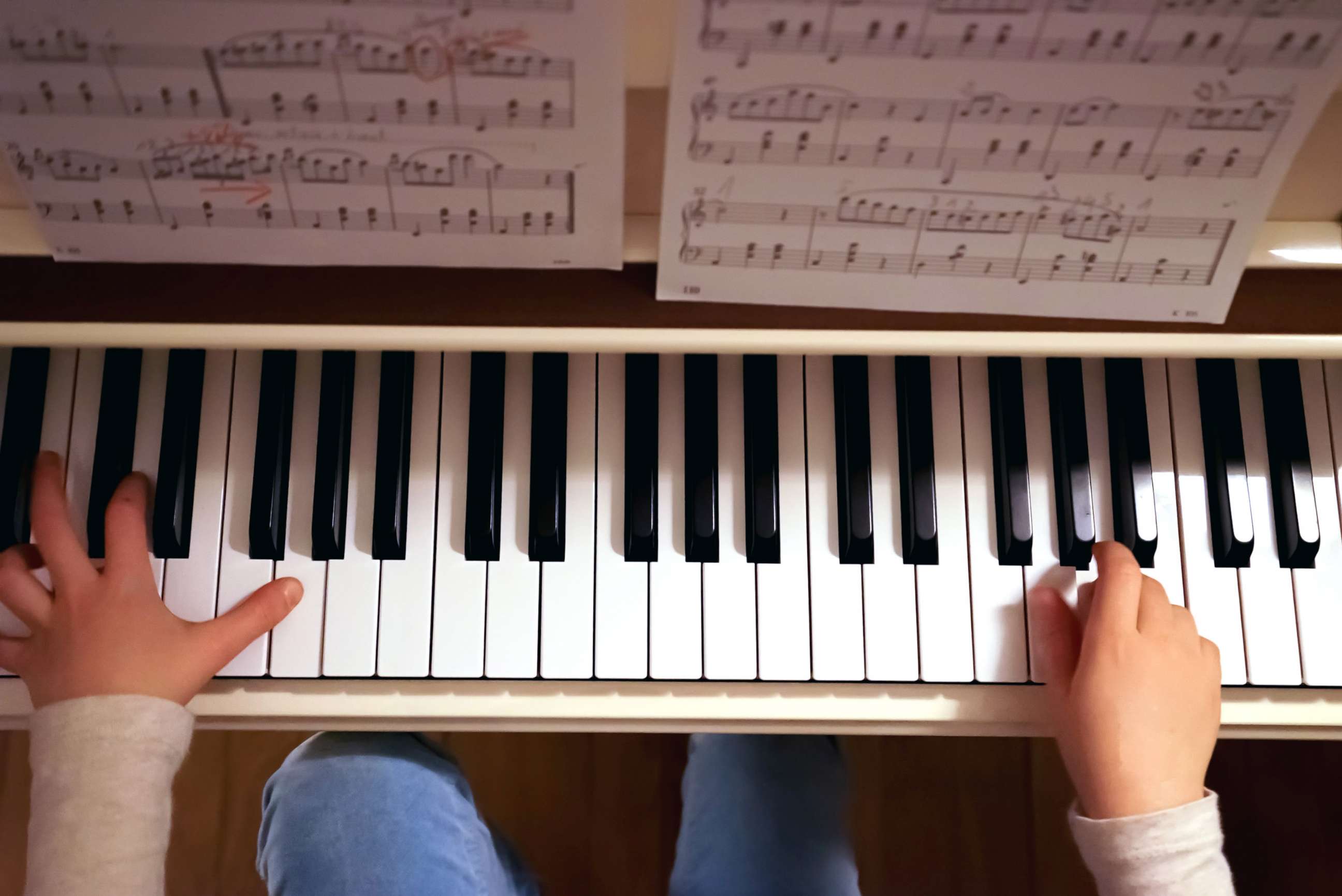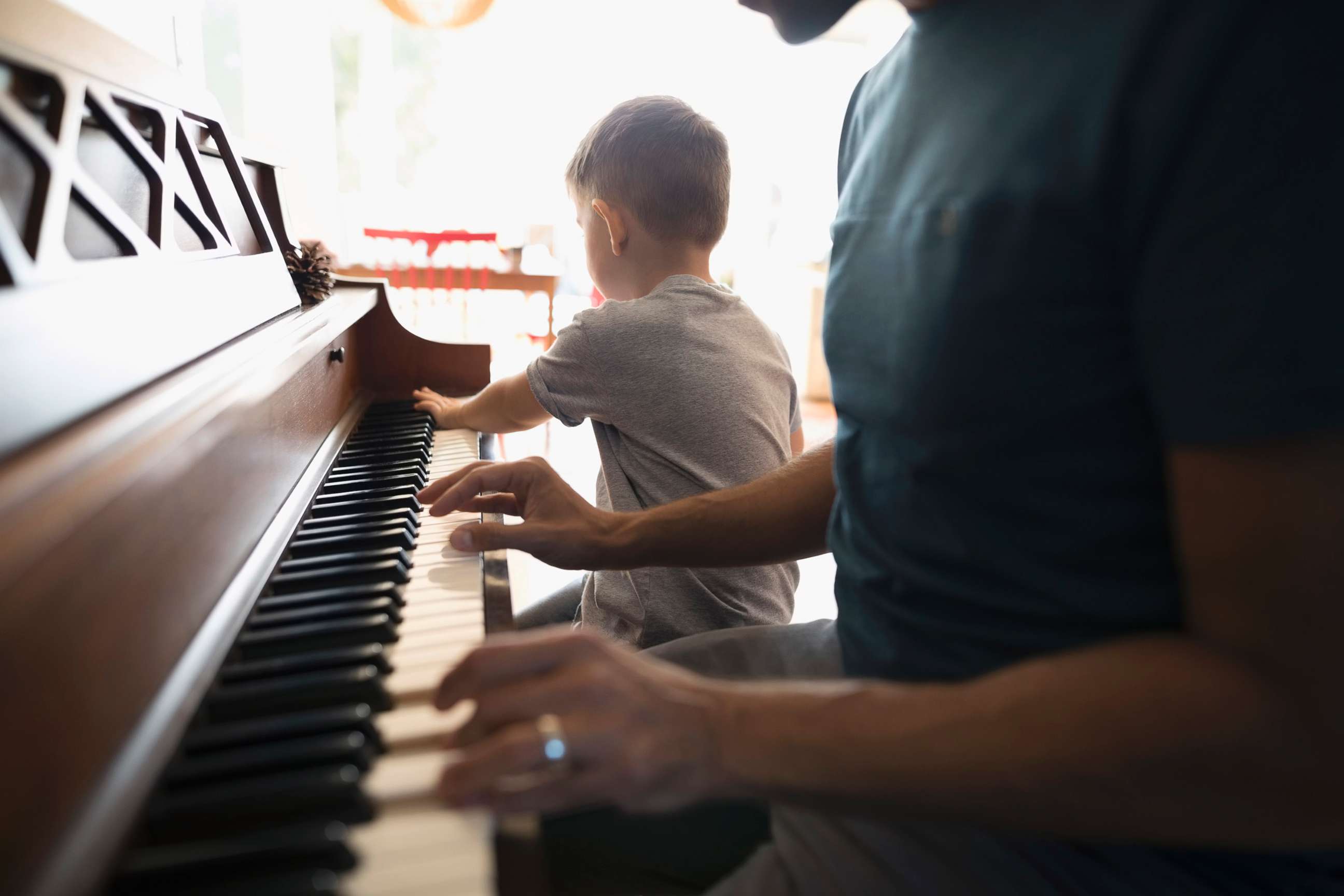Music education could help children improve their language skills
An MIT study done in Beijing shows music may help with spoken language.

While many people often consider music a universal language, a recent Massachusetts Institute of Technology (MIT) study done in Beijing shows that it may help with spoken language as well.
Kindergarten students who took piano lessons showed increased capabilities to distinguish pitch and understand spoken words -- and it showed up on their brain scans, according to the study's findings.
Researchers from the International Data Group (IDG)/McGovern Institute at Beijing Normal University wanted to compare the effects of music education on reading versus standard reading training. The reading training included an interactive reading experience, in which the teacher read words aloud from enlarged texts, and the students read along with the teacher.

"If children who received music training did as well or better than children who received additional academic instruction, that could be a justification for why schools might want to continue to fund music,” Robert Desimone, Ph.D., senior author of the research article and director of MIT’s McGovern Institute for Brain Research, explained.
A group of 74 Mandarin-speaking children, ages 4 to 5, were randomly assigned to three smaller groups. One group got piano training, the second group was trained in reading, and a third control group received no extra training at all. Piano training included 45-minute piano sessions three times a week.
After six months of piano lessons, researchers found that the students were better at differentiating between spoken words and vowel sounds. The group with reading training had similar results. However, the difference between these two groups came in “consonant-based word discrimination.” The piano lessons group did better; this correlated to the group’s response to differences in musical pitch, which was observed immediately after the children heard a pair of notes in a sound-proof room and were then asked to differentiate between pitches.
While the study involved a small sample size and the differences in performance between the piano lesson and reading groups weren't found in all studied areas, the researchers say that the findings were still significant when looking at language study.
"The children didn't differ in the more broad cognitive measures,” Desimone said, “but they did show some improvements in word discrimination, particularly for consonants. The piano group showed the best improvement there.”

Additionally, the brain activity of the students was measured with electroencephalography (EEG), a measurement of the electrical activity of the brain. The EEG showed stronger responses when piano students listened to a series of tones with different pitches.
The results of this study give a boost to the idea of music training in kindergarten students as a method of enhancing the way brain cells and neurons process and respond to pitch.
Although there were improved language processing and auditory word discrimination in the children who took piano lessons, all three experimental groups had similar outcomes in overall cognition measures, which included IQ, working memory, and attentiveness.

Desimone explained the potential benefits of this study.
"There are positive benefits to piano education in young kids, and it looks like for recognizing differences between sounds including speech sounds, it's better than extra reading," he said. "That means schools could invest in music and there will be [a] generalization to speech sounds. It's not worse than giving [an] extra reading to the kids, which is probably what many schools are tempted to do -- get rid of the arts education and just have more reading."
Denise Powell, MD Candidate, is currently a student from Jackson, Mississippi, working in the ABC News Medical Unit.




